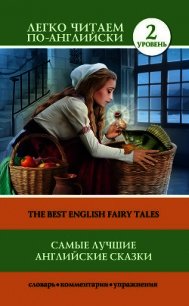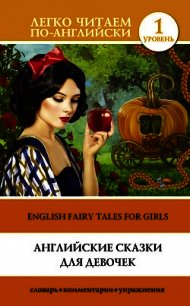More English Fairy Tales - Jacobs Joseph (читать книги полностью txt) 📗
Remarks.—Mr. Baring-Gould, in his Curious Myths of the Middle Ages, has explained the Pied Piper as a wind myth. Mrs. Gutch is inclined to think there may be a substratum of fact at the root of the legend, basing her conclusions on a pamphlet of Dr. Meinardus, Der historische Kern, which I have not seen. She does not, however, give any well-authenticated historical event at Hameln in the thirteenth century which could have plausibly given rise to the legend, nor can I find any in the Urkundenbuch of Hameln (Luneberg, 1883). The chief question of interest attaching to the English form of the legend as given in 1839 by Elder, is whether it is independent of the German myth. It does not occur in any of the local histories of the Isle of Wight which I have been able to consult of a date previous to Elder’s book—e.g., J. Hassel, Tour of the Isle of Wight, 1790. Mr. Shore, in his History of Hampshire, 1891, p. 185, refers to the legend, but evidently bases his reference on Elder, and so with all the modern references I have seen. Now Elder himself quotes Verstegan in his comments on the legend, pp. 168-9 and note, and it is impossible to avoid conjecturing that he adapted Verstegan to the locality. Newtown, when Hassel visited it in 1790, had only six or seven houses (l.c., i., 137-8), though it had the privilege of returning two members to Parliament; it had been a populous town by the name of Franchville before the French invasion of the island of temp. Ric. II. It is just possible that there may have been a local legend to account for the depopulation by an exodus of the children. But the expression “pied piper” which Elder used clearly came from Verstegan, and until evidence is shown to the contrary the whole of the legend was adapted from him. It is not without significance that Elder was writing in the days of the Ingoldsby Legends, and had possibly no more foundation for the localisation of his stories than Barham.
There still remains the curious parallel from Belfast to which Mrs. Gutch has drawn attention. Magic pipers are not unknown to English folk-lore, as in the Percy ballad of The Frere and the Boy, or in the nursery rhyme of Tom the Piper’s son in its more extended form. But beguiling into a mountain is not known elsewhere except at Hameln, which was made widely known in England by Verstegan’s and Howell’s accounts, so that the Belfast variant is also probably to be traced to the Rattenfanger. Here again, as in the case of Beddgellert (Celtic Fairy Tales, No. xxi.), the Blinded Giant and the Pedlar of Swaffham (infra, Nos. lxi., lxiii.), we have an imported legend adapted to local conditions.
XLV. HEREAFTERTHIS
Source.—Sent me anonymously soon after the appearance of English Fairy Tales. From a gloss in the MS. “vitty” = Devonian for “decent,” I conclude the tale is current in Devon. I should be obliged if the sender would communicate with me.
Parallels.—The latter part has a certain similarity with “Jack Hannaford” (No. viii.). Halliwell’s story of the miser who kept his money “for luck” (p. 153) is of the same type. Halliwell remarks that the tale throws light on a passage in Ben Jonson: Say we are robbed, If any come to borrow a spoon or so I will not have Good Fortune or God’s Blessing Let in, while I am busy.
The earlier part of the tale has resemblance with “Lazy Jack” (No. xxvii), the European variants of which are given by M. Cosquin, Contes de Lorraine, i., 241. Jan’s satisfaction with his wife’s blunders is also European (Cosquin, l.c., i., 157). On minding the door and dispersing robbers by its aid see “Mr. Vinegar” (No. vi.).
Remarks.—“Hereafterthis” is thus a melange of droll incidents, yet has characteristic folkish touches (“can you milk-y, bake-y,” “when I lived home”) which give it much vivacity.
XLVI. THE GOLDEN BALL
Source.—Contributed to the first edition of Henderson’s Folk-Lore of the Northern Counties, pp. 333-5, by Rev. S. Baring-Gould.
Parallels.—Mr. Nutt gave a version in Folk-Lore Journal, vi., 144. The man in instalments occurs in “The Strange Visitor” (No. xxxii.). The latter part of the tale has been turned into a game for English children, “Mary Brown,” given in Miss Plunket’s Merry Games, but not included in Newell, Games and Songs of American Children.
Remarks.—This story is especially interesting as having given rise to a game. Capture and imprisonment are frequently the gruesome motif of children’s games, as in “Prisoner’s base.” Here it has been used with romantic effect.
XLVII. MY OWN SELF
Source.—Told to Mrs. Balfour by Mrs. W., a native of North Sunderland, who had seen the cottage and heard the tale from persons who had known the widow and her boy, and had got the story direct from them. The title was “Me A’an Sel’,” which I have altered to “My Own Self.”
Parallels.—Notwithstanding Mrs. Balfour’s informant, the same tale is widely spread in the North Country. Hugh Miller relates it, in his Scenes from my Childhood, as “Ainsel”; it is given in Mr. Hartland’s English Folk and Fairy Tales; Mr. F.B. Jevons has heard it in the neighbourhood of Durham; while a further version appeared in Monthly Chronicle of North Country Folk-Lore. Further parallels abroad are enumerated by Mr. Clouston in his Book of Noodles, pp. 184-5, and by the late Prof. Kohler in Orient und Occident, ii., 331. The expedient by which Ulysses outwits Polyphemus in the Odyssey by calling himself ????? is clearly of the same order.
Remarks.—The parallel with the Odyssey suggests the possibility that this is the ultimate source of the legend, as other parts of the epic have been adapted to local requirements in Great Britain, as in the “Blinded Giant” (No. lxi.), or “Conall Yellowclaw” (Celtic Fairy Tales, No. v.). The fact of Continental parallels disposes of the possibility of its being a merely local legend. The fairies might appear to be in a somewhat novel guise here as something to be afraid of. But this is the usual attitude of the folk towards the “Good People,” as indeed their euphemistic name really implies.


